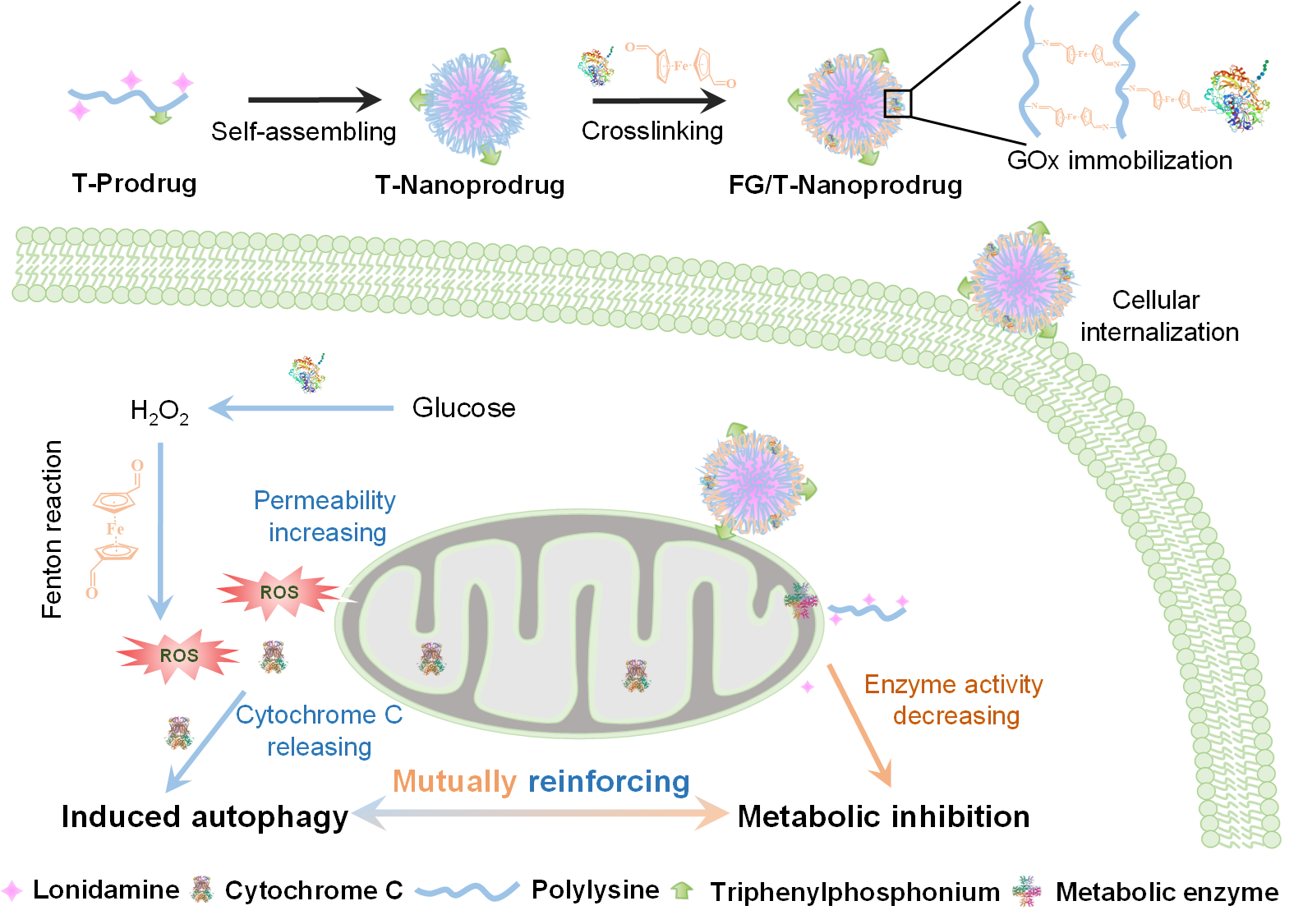Mitochondrial-targeting nanoprodrugs to mutually reinforce metabolic inhibition and autophagy for combating resistant cancer
作者:Sun, M.; Wang, C. Y.; Lv, M. C.; Fan, Z.*; Du, J. Z.* 时间:2021-11-03 点击数:

Abstract
Abnormal energy metabolism is one of the hallmarks of cancer and closely linked to therapy resistance. However, existing metabolic inhibitors suffer from inefficient cell enrichment and therapeutic effects. In this work, we developed an effective strategy to mutually reinforce the metabolic inhibition and autophagy for enhanced tumor killing efficacy and combating resistant cancer. First, mitochondrial homing moiety triphenylphosphonium and metabolic inhibitor lonidamine were grafted onto polylysine. After self-assembly of this functionalized polylysine, ferrocene and glucose oxidase were immobilized to afford additional chemotherapy functions, and the final product was named as FG/T-Nanoprodrug. Effective mitochondrial targeting and metabolic inhibition were observed in resistant cancer cells. In addition, owing to the inhibited metabolism, less glucose is consumed to allow FG/T-Nanoprodrug to produce excess reactive oxygen species (ROS) by glucose oxidase and ferrocene. The enhanced chemodynamic therapy increases the mitochondrial permeability to promote the release of cytochrome c from mitochondria, ultimately induces high levels of autophagy. The FG/T-Nanoprodrug demonstrated superior mutually reinforcing of metabolic inhibition (up to 3.7-fold compared to free lonidamine) and autophagy (up to 125.3-fold compared to free lonidamine) to effectively kill resistant cancer cell both in vitro and in vivo. Overall, this strategy could pave a new way to efficient treatment of resistant cancer and other metabolically abnormal diseases.
文章链接:Biomaterials 2021, 278, 121168.